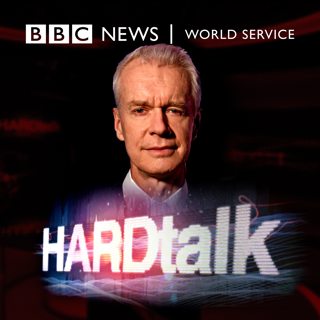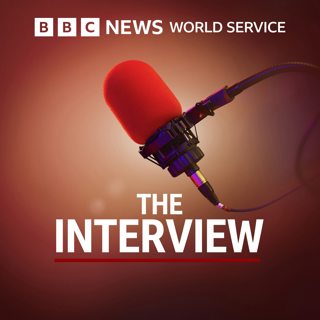
Victoria Spartz: Has Donald Trump switched sides on Ukraine?
Stephen Sackur speaks to US Congresswoman Victoria Spartz. Born and raised in Ukraine and now a Donald Trump loyalist, what does she make of the US president’s strategy of pushing for peace in Ukraine by labelling Ukraine’s President Zelensky a dictator and appearing to hand Vladimir Putin a series of diplomatic gifts?
26 Feb 202522min

N. Ram: Freedom of expression in India
Stephen Sackur speaks to one of India’s most influential media voices, N. Ram, director of the Hindu Publishing Group. With independent journalists complaining of intimidation and social media facing new curbs, is freedom of expression under threat in the world’s biggest democracy?
24 Feb 202522min

Laila Soueif and Sanaa Seif: Hunger for freedom
Stephen Sackur speaks to Laila Soueif, mother of Alaa Abdel Fattah, a political prisoner in Egypt and Alaa’s sister Sanaa Seif. Laila is into the fifth month of a hunger strike in a desperate bid to win her son’s freedom. Alaa is a dual British-Egyptian citizen – should the UK be doing more to help?(Photo: Egyptian activist Laila Soueif gives a statement to the media outside Downing Street about her son, Alaa Abdel Fattah, in London, 10 February 2025. Credit: Tolga Akmen/EPA)
19 Feb 202522min

Jake Sullivan: The legacy of the Biden White House
Stephen Sackur is in Washington D.C. for an exclusive interview with Jake Sullivan, who was National Security Adviser in the Biden White House. From Afghanistan to Ukraine to Gaza, he faced a series of rolling crises. Did the failings of the Biden administration prepare the ground for Trump 2.0?
14 Feb 202522min

Tom Fletcher: What is the impact of US foreign aid cuts?
Sarah Montague speaks to the UN’s humanitarian chief, Tom Fletcher. As President Trump pulls almost all America’s foreign aid spending, what will the impact be on those around the world who most rely on it?
13 Feb 202522min

Omar Abdullah: Can he bring peace to Jammu and Kashmir?
Stephen Sackur speaks to Omar Abdullah, chief minister of Jammu and Kashmir. This mountainous territory neighbouring Pakistan has long been a source of political tension and violence. Can the chief minister work with Delhi to find a pathway to peace and stability?
12 Feb 202522min

Dhananjaya Chandrachud: Justice and the rule of law
Stephen Sackur is in New Delhi for an exclusive interview with the recently retired Chief Justice of India and Supreme Court judge, Dhananjaya Chandrachud. With Indian politics dominated by Narendra Modi and the Hindu nationalist BJP, have the courts successfully protected the country’s secular constitution?
10 Feb 202522min

Hardeep Singh Puri: India's big ambitions
Stephen Sackur is in New Delhi to speak India’s Minister for Petroleum and Natural Gas, Hardeep Singh Puri. India has big ambitions to be a global economic superpower. What does that mean for the country’s geopolitical alliances and commitment to decarbonisation?(Photo: Hardeep Singh Puri, India’s Minister for Petroleum and Natural Gas)
7 Feb 202522min






















